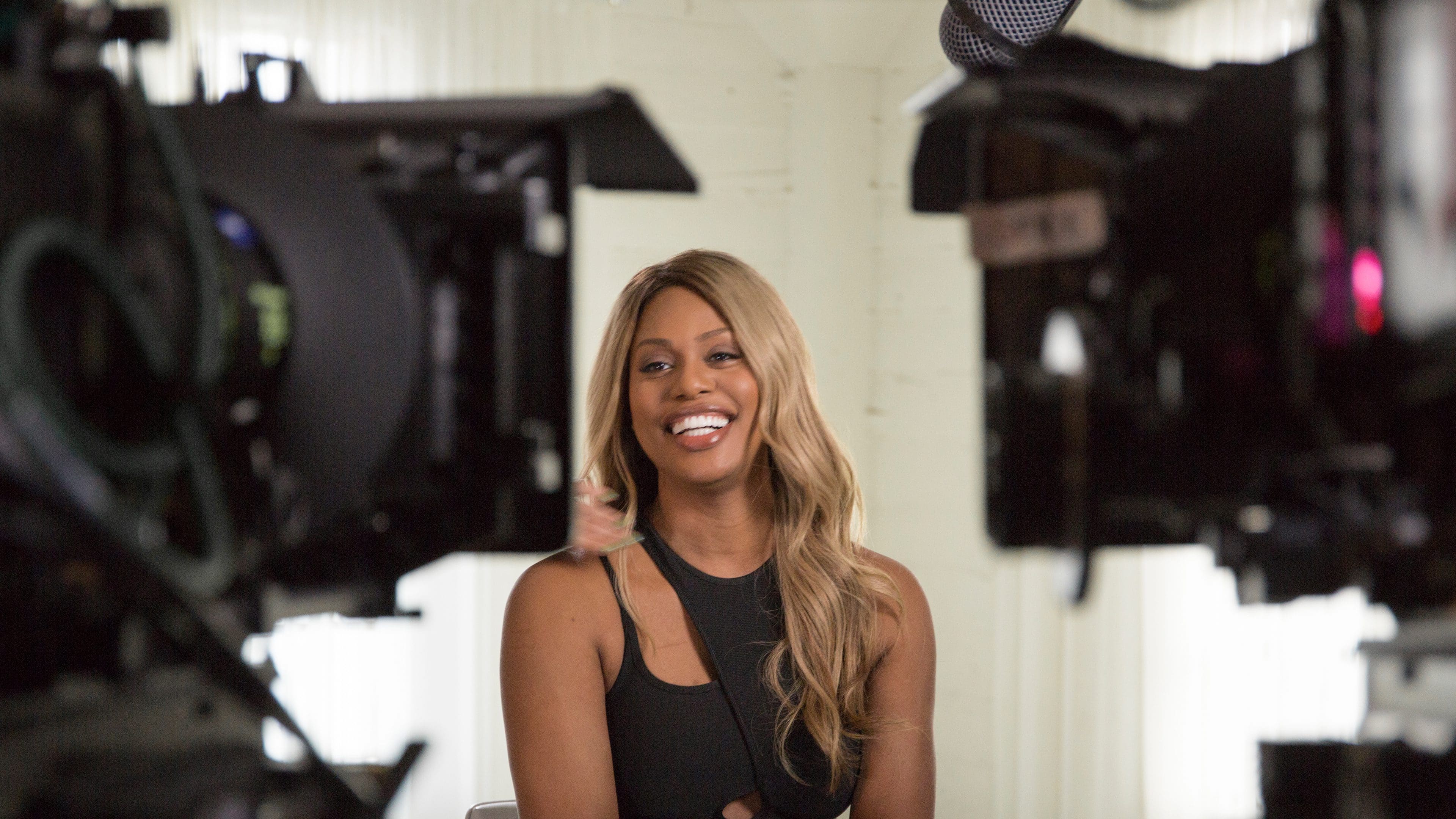
In 2014, when Time magazine ran its “The Transgender Tipping Point” issue with actress Laverne Cox on the cover, it was just short of the first anniversary of SCOTUS’s landmark decision legalizing gay marriage and it truly felt like America’s relationship to the LGBTQ community was changing. Since then, there have been ups (the recent SCOTUS decision protecting queer employees from being fired for their orientation) and downs (the roll-back of health care protections for transgender patients), but from Pose, to Amazon’s award-winning Transparent, to The Chilling Adventures of Sabrina’s Theo, trans characters are more prominent than ever before.
While trans people may seem newer to pop culture for those who haven’t been paying attention, Netflix’s new documentary Disclosure uses a mix of clips and interviews with current trans scholars and performers to emphasize that the community has always been a part of movies and television. Director Sam Feder starts early, with director D.W. Griffith’s silent film Judith of Bethulia. In the scene where the titular Judith beheads Holofornes, Griffith uses a cut that is widely considered the invention of the dynamic montage and as historian Susan Stryker explains, it’s significant that a seemingly trans “cut” eunuch character “presides over” the invention of the cut in film. However, as filmmaker Vance Ford points out, Griffith also creates the first trans joke through that character.
There and throughout, perhaps Disclosure’s biggest strength is its willingness to question monumental examples of trans representation just as often as it praises them. As Ford succinctly puts it, “there are lots of ugly things about our history that feel like an assault, but I think we have to know them.” One of the film’s most compelling sections explores its subjects’ reactions to 1999’s Boys Don’t Cry. Where trans actors Zeke Smith and Michael D. Cohen feel the film resonated with their experiences, both actor Brian Michael Smith and Laverne Cox herself mention that it fed their primal fears of both outing and death. Similarly, media manager and writer Tiq Milan furthers that criticism noting that in erasing the black trans friend of the film’s lead who was also killed, the film not only erased a real person from the narrative, but suggested to him that his queerness and blackness could not exist at the same time.
While Boys Don’t Cry is an inevitable part of any discussion of trans representation in pop culture, part of what’s so impressive about Disclosure is the breadth of the media it covers. From The Jeffersons, to Silence of the Lambs, to Yentl, to even Jerry Springer episodes, each new example emphasizes both how important representation is and how a lack of it leaves viewers to find it in unexpected places. Perhaps the most surprising inclusion is the Looney Tunes cartoon, What’s Opera, Doc, in which the usual Bugs Bunny-Elmer Fudd rivalry morphs into a parody of Wagner’s The Valkyrie. In it, Bugs dresses up in women’s clothing and as filmmaker Lilly Wachowski explains, she looks back on that episode with, “a certain glee about the transformative aspects.” However, Wachowski also notes that it ends with Bugs’s death at Elmer Fudd’s hands, darkly joking that it’s, “the original trans panic defense in cartoon form.”
It’s a fantastic moment of textual analysis and only one of many that will impress viewers accustomed to parsing through media in that way. However, it’s worth noting that because Disclosure is a film made by and for viewers who enjoy that kind of in-depth, somewhat academic media analysis, it may not appeal to the casual viewer. Indeed, the film so consistently and unrelentingly delivers one thought-provoking media study after another, that it can feel very dense despite being under two hours and viewers new to that type of discourse may not be able to contextualize it all in one sitting.
That said, though Disclosure is extremely complex and occasionally didactic, it is also a comprehensive and necessary history of trans representation in film. As Ford puts it, “We cannot be a better society until we see that better society,” and Disclosure is about examining trans representation in media in the hopes of improving it for the next generation of trans viewers. It is not necessarily an easy watch, but maybe it shouldn’t be. We are in a cultural moment where it’s become inescapably clear that avoiding tough conversations is equivalent to refusing to grow. And we simply can’t stay the same anymore.

